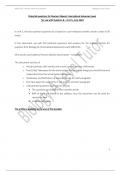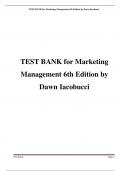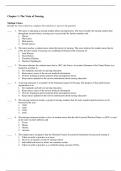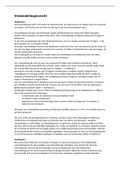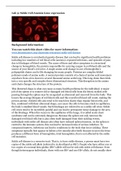Tentamen (uitwerkingen)
IAL Biology Unit 5 - Potential Questions and Answers for the Scientific Article - JUNE 2024
- Vak
- Instelling
Potential questions for Pearson Edexcel International Advanced Level for use with Question 8 – Unit 5, June 2024 In unit 5, the last question (question 8) is based on a pre-released scientific article a total of 30 marks. In this document, you will find potential questions and answers for t...
[Meer zien]
